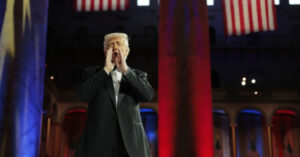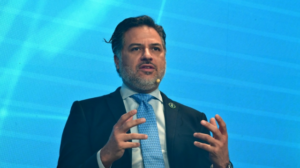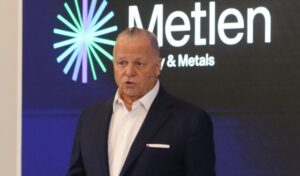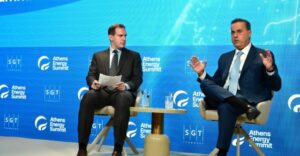As Donald Trump‘s increased “retaliatory” tariffs went into effect shortly after midnight Wednesday, the U.S. president was keeping a close eye on the bond market.
Yields on long-term U.S. securities were soaring, with the 10-year U.S. bond posting its biggest three-day rise since 2001.
The worst-case scenario was beginning to take shape: the voters who put him back in the White House to control inflation were faced with soaring prices and higher borrowing costs. “People started to get dizzy,” Trump himself admitted.
Trump admitted.
Within 14 hours, the president would make one of the biggest economic policy reversals in modern American history: he announced a three-month pause in new tariffs for dozens of countries, with the sole exception of China– for which tariffs were raised to 125%.
From the Oval to Fox Business: pressure from financial circles and advisers
The decision was made amid an atmosphere of uncertainty and a financial storm. Trump himself watched the morning coverage of Fox Business, where bankers, traders and businessmen – even his allies – warned that his policies were driving the economy into a recession. Jamie Dimon, CEO of JPMorgan Chase, caught Trump’s attention by declaring that “global trade relations are unfair,” but urged a soft approach and negotiation.
Trump commented in praise of Damon: “Very smart, a financial genius, did a fantastic job at the bank.” But the JPMorgan CEO also warned of something else: “Recession is the most likely outcome from these policies.”
Billionaire intervention: Musk, Ackman and Graham on the counterattack
The pressure didn’t just come from the market. Elon Musk, an adviser to Trump, fiercely attacked his tariff strategy and his trade adviser Peter Navarro. Bill Ackman, a well-known hedge fund manager and Trump supporter, has already proposed a 90-day pause over the weekend to allow room for negotiations.
On the eve of the rollback, Senator Lindsey Graham called Trump and urged him to “sit at the table with the partners” rather than escalate.
On Wednesday morning, the picture began to change. Trump called an emergency meeting of his top economic advisers at the White House – Trade Representative Jameson Greer, Treasury Secretary Scott Besed and Commerce Secretary Howard Latnick. Vincent cancelled a scheduled appearance at a party committee to return to Washington immediately. Latnick says that “the pressure from abroad was building – we were getting offers that didn’t exist before, even for non-tariff barriers.”
Trump is persuaded. He and his advisers write a post on Truth Social without informing his legal team. “We wrote it on the spot,” he said. “It was from the heart – and well written, too.”
Change without a plan – and promises of flexibility
The announcement caught many in the West Wing by surprise, and it remains to be seen exactly how the decision will be implemented and which states – such as Canada or Mexico – will benefit. Trump doesn’t seem bothered. “You have to show some flexibility,” he commented. “And I can do that.”
The president left open the possibility of exemptions for specific companies hit by the tariffs. Amid rapid stock market swings and political pressures, he appears satisfied with his choice: “Everything will be fine. America will be bigger and better than ever,” he wrote on his own platform.
Behind his seemingly impulsive turn, there is a mix of economic realism, political survival and lobbying – which, once again, have shaped the international economic policy of the United States.
Ask me anything
Explore related questions





